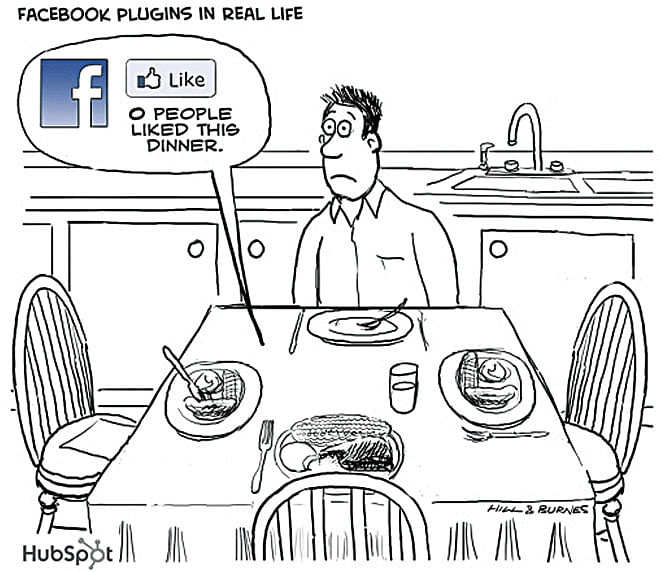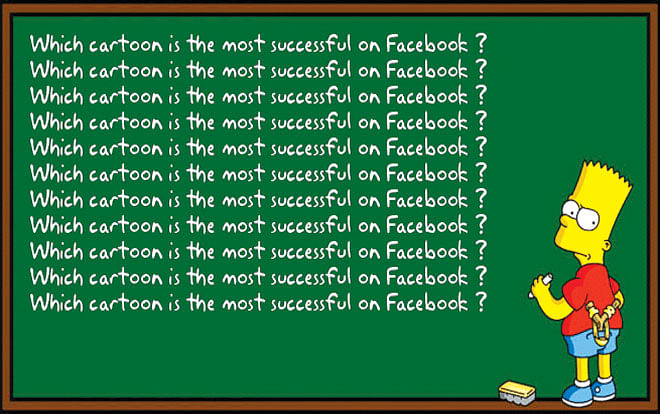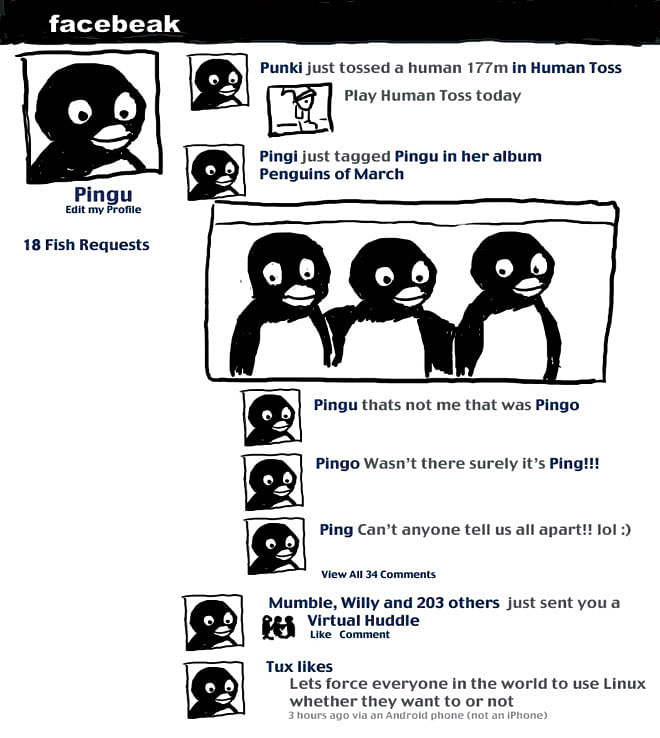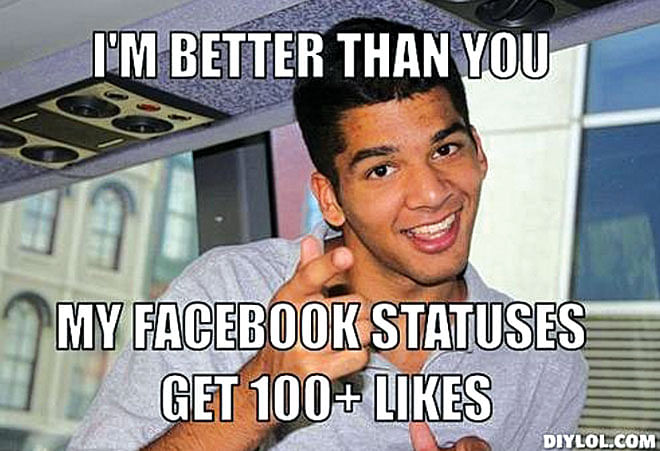Letting Facebook Make Your Life Choices

Friends, should I have muri or chanachur?
'Like' for muri and 'comment' for chanachur, please.
For regular Facebook users, this is a common sight. No kidding, really. Status updates like the one above often occupy our newsfeeds as people leave decisions like these on their Facebook friends. At times, they do so because the outcomes of these decisions do not matter much and at other times, because they need 'expert' opinions.
Facebook has taken over our social lives, defining and determining our social boundaries. Virtual arguments, relationship statuses and updates, being a follower, joining groups, posting pictures and videos, playing games, inviting friends to events are what we regularly do on Facebook. That too between classes or work -- on laptops, on smartphones and at computer clusters. Users keep in touch with friends and family far away, learn more about people they just met and overall, create images of themselves just the way they want the world to perceive them.

All these nonetheless come with their fair share of drawbacks. Communication becomes more impersonal because what we know about our friends and family now depends less on personal interactions and more on what statuses they post, what we read on their walls, what their friends say and what events they attend. Perhaps since our family and friends can also see our regular updates, they feel less inclined to call and check up on what is going on in our lives. Hence, people get emotionally distant and relationships gradually tend to lose their personal touch.
Apart from all these characteristics of the most prominent social media hub that we keep debating over, Facebook also plays a significant role in our everyday decision-making. Be it a commercial or a personal decision, Facebook is growing more and more vital in affecting our choices. People around constantly contribute with information about their lives, their tastes and indirectly even about purchases. They upload photos of vacations on Facebook, pictures of gadgets they want, things that make them happy or sad -- uploading and sharing things that we tend to take in as our daily doses of Facebook experience.

We are affected by the kind of content they promote, the different locations they check into, their tastes in arts and entertainment, their views and opinions that they put up through the functions of 'likes,' 'comments' and 'shares' which at the end of the day shape how we lead our lives. Masum Ahmed says, “I had to buy a laptop but I am no techie. Perplexed by all the choices, I came up with a status on Facebook where many of my friends wrote lots of useful comments with relevant information and user experiences that I would not have come across otherwise. This made my purchase decision an easy one.”

Anika Alam says, “Before I was going to try out a new a hair colour, I wished to consider at least some of my friends' opinions. So, I updated my status on this and my friends helped me decide which trend was yay and which was nay. It is fun, easy and kind of like taking a public poll via a virtual platform.”
The communicative functions of Facebook are becoming popular, easy to use and helpful for a lot of other purposes. Commercialism has taken its toll on Facebook since it updated its promotions guidelines to allow brands to run Facebook contests on their fan page timelines. With the help of certain apps, brands can now accept 'contest entries' by asking fans to like, comment, or message their official page. Valentine's Day 'couple selfie' contests, Pahela Baishakh hairstyle contests etc depend on Facebook functions to pick their winners. Many events and talent hunts also depend greatly on Facebook likes, comments and shares to come up with their winning entries. The validity of basing such competition decisions on methods like these remains greatly unchecked though. Who knows, perhaps in the future, major outcomes can be decided based on Facebook polls, for example, elections: 'like' for Candidate A and 'comment' for Candidate B. Sigh.
Though the social media phenomenon is a close reflection of life, it is definitely not a wise call to give in to the hype created by it because no public platform is customised enough to suit individual needs. By blurring the premises between reality and virtuosity, Facebook often makes the grass on the other side look greener. It is undoubtedly true that social media gives us voice and rejecting its merits in the twenty first century is next to impossible. However, due to its extended appeal in our lives, we must take extra care in maintaining a certain degree of discretion so that our judgments are not clouded. There are no crystal balls in life and decision-making is intricate and uncertain so verdicts based on bubbles of virtuosity do come with a red alert.


 For all latest news, follow The Daily Star's Google News channel.
For all latest news, follow The Daily Star's Google News channel. 



Comments